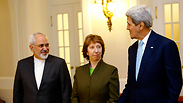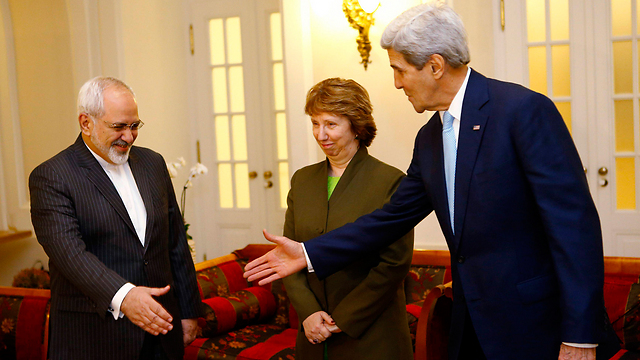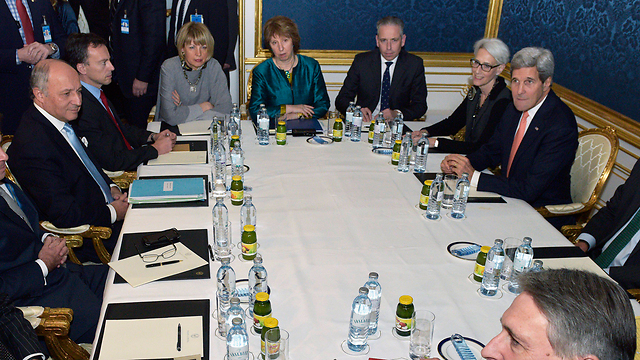
VIENNA - The US and five other nations trying to negotiate a nuclear deal with Iran are turning away from attempting to reach an agreement by deadline and have started internal discussions on extending the talks, diplomats said Sunday.
The decision comes less than two days before the deadline at midnight Monday for a deal attempting to cap Iran's nuclear activities in exchange for lifting sanctions on the Islamic Republic.
After the so-called P5+1 group - the US, Russia, China, Britain, France and Germany - have talked among themselves on approaches they could present to Tehran, US Secretary of State John Kerry met with his Iranian counterpart Mohammad Javad Zarif to discuss the possibility of extension of the talks. At the same time, formal talks with Iran on bridging the differences were continuing.

"It is only natural that less than 48 hours from the deadline we are discussing a range of options," a third Western diplomat said. "An extension is one of those options. It should come as no surprise that we will also engage in a discussion of the options with the Iranians at some point as well."
A member of the Iranian delegation in Vienna said earlier the tipping point could come Sunday night, with Iran and six world powers deciding that their differences are too big to bridge by Monday and switching to extension mode.
From that point on, he said, the negotiations would focus on reaching a "general political agreement" on what both sides are committed to resolving. The official said that talks would then be held in the near future to sign that agreement, leading to more negotiations on outstanding issues.
Another unnamed official was cited by Iran's official IRNA news agency as saying that discussion had already begun. But the US is unlikely to accept anything that stops at outlining issues to be solved without at least progress on narrowing the gaps.
Beyond assurances that the Iranians are not just talking for the sake of winning time, the US administration wants to show to congressional skeptics that there is sense to further negotiations.
Should such a plan be agreed upon, one possibility for a resumption of talks would be the first week in December when US Secretary of State John Kerry plans to return to Europe for a previously scheduled NATO foreign ministers meeting in Brussels, and an international conference in London.
Diplomats familiar with the negotiations said sizable gaps remain between the US and Iran on the key issue of how deeply Tehran would have to reduce nuclear activities that could be turned to making arms.
The talks are confidential, but President Barack Obama outlined the differences between Washington and Tehran in general terms.
"I think that our goal has consistently been to shut off a whole bunch of different avenues whereby Iran might get a nuclear weapon, and at the same time make sure that the structure of sanctions are rolled back step for step as Iran is doing what it's supposed to do," he told ABC's "This Week" in an interview aired Sunday.
"I think Iran would love to see the sanctions end immediately, and then to still have some avenues that might not be completely closed, and we can't do that."
Iran denies any interest in such weapons, but is negotiating because it wants an end to nuclear-related international sanctions.
















